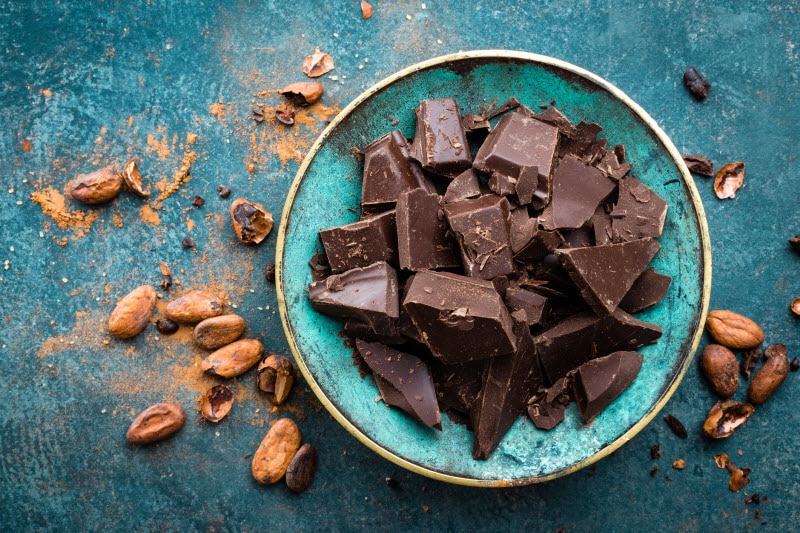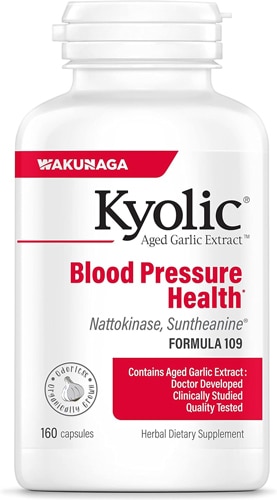[vc_row][vc_column][vc_column_text]Often considered a healthy indulgence, dark chocolate might be the ideal treat for the wellness seekers who have high blood pressure.
A study published last month in Nature Scientific Reports found that
those who eat dark chocolate regularly may decrease their risk of essential hypertension, which is high blood pressure that occurs without a known cause.

Essential hypertension represents the vast majority of cases of high blood pressure. This condition can trigger many serious illnesses, including:
- Coronary artery disease
- Heart failure
- Stroke
Importantly, the study authors stress that they are not suggesting everyone now eat dark chocolate as a means of preventing essential hypertension.
Rather, they say that those who are at risk for essential hypertension might "
replace their usual unhealthy snacks with dark chocolate."
The researchers also looked into whether dark chocolate consumption reduced the risk of 10 other cardiovascular diseases, but did
not find such an association.
The benefits of dark chocolate for health
The researchers note that eating dark chocolate is most likely to benefit those who are at risk for essential hypertension.
Risk factors for essential hypertension include:
- Family history of the condition
- Lack of physical activity
- Diet rich in high-salt, high-fat foods
- Advanced age
The health benefits of dark chocolate are largely a result of antioxidants known as flavanols that are found within cocoa, says
Caroline West Passerrello, a registered dietitian nutritionist and spokesperson for the Academy of Nutrition and Dietetics who was not associated with the study.
“The flavanols within the cocoa can support production of nitric oxide, which is a compound that can relax blood vessels and improve circulation,” says Passerrello, who is also an instructor at the University of Pittsburgh.
The fat content of the cocoa bean is unique in that it contains a mixture of healthy monounsaturated fatty acids in the form of oleic acid, just like you would find in olive oil, she says.
It also contains a specific saturated fatty acid known as stearic acid. Although saturated fatty acids are typically limited in a heart-healthy diet, dietary stearic acid does not clog the arteries.
Cocoa can provide other health benefits.
“The minerals within cocoa further provide vascular aid, since it contains magnesium, calcium, copper, and potassium, which can all help in reducing the risk of heart disease and high blood pressure,” Passerrello says.
Dark chocolate can also be a source of fiber, iron, phosphorus and zinc.
Eating the right type of dark chocolate
Given those potential benefits, dark chocolate can be an acceptable sweet treat when eaten in moderation by those who otherwise follow a heart-healthy diet, Passerrello says.
However, it’s important to choose the right type of dark chocolate. That means looking for dark chocolate rich in cocoa and flavanols.
“I would recommend they choose a dark chocolate that is at least 70% cocoa if they’re consuming it for health benefits,” Passerrello says.
Of course, you do not need to eat dark chocolate to access these flavanols. They also can be found in other dietary sources, such as:
- Grapes
- Lychees
- Strawberries
- Black or green tea
- Other cacao products
Still, dark chocolate can be a good choice for those with a “sweet tooth,” Passerrello says.
The news is not so great for those who love milk chocolate. It contains far
lower levels of flavanols than dark chocolate. Meanwhile, white chocolate does not contain flavanols at all.
The downsides of dark chocolate
Although dark chocolate might offer some blood pressure benefits, it would be a mistake to view it as a health food.
In addition, some people who eat dark chocolate might experience “slight side effects from its theobromine and caffeine content,” Passerrello says.
While a higher percentage of cocoa gives you access to more flavanols, it also exposes you to higher levels of caffeine.
In fact, a 1-ounce serving of dark chocolate that is 70% to 85% cocoa contains between 20 milligrams and 60 milligrams of caffeine. That compares to about 70 to 140 milligrams of caffeine in a typical cup of coffee.
Negative impacts of eating dark chocolate might include:
- Sleeplessness
- Faster heartbeat
- Mild headaches
- Nausea
- Nervousness
People who regularly take aspirin and NSAIDs, anticoagulants or anti-platelet drugs should speak with their doctor before consuming a lot of dark chocolate, Passerrello says.
“Its effect on the body may be additive to these drugs,” she says.
In addition, a 2022 Consumer Reports investigation found high levels of heavy metals in several brands of dark chocolate.
Excessive levels of heavy metals can interfere with metabolic functions and harm organs in the body.
Getting enough dark chocolate – but not too much
The study published in Nature Scientific Reports was not able to determine precisely how much dark chocolate a person would need to consume to boost their heart health.
However, Passerrello notes that the researchers stressed that habitual consumption of flavonoids is the best way to access their cardiovascular benefits.
“If someone would like to obtain this from consuming dark chocolate daily, consuming around 100 grams of a high-percent dark chocolate could provide about 170 milligrams of flavonoids,” Passerrello says.
She adds that experts generally recommend consuming 360 flavonoids per day. So, it would make sense to supplement your intake of dark chocolate with other nutrient-dense foods, such as grapes, wine, apples or tea.
Passerrello also emphasizes that those who eat dark chocolate also should adhere to a heart-healthy diet. The hallmarks of such a diet include:
- Consuming vegetables, fruits and whole grains
- Limiting saturated and trans fats
- Choosing lean proteins
- Limiting sodium
[/vc_column_text][/vc_column][/vc_row][vc_row][vc_column][vc_text_separator title="Featured Products" border_width="2"][vc_row_inner equal_height="yes" content_placement="middle" gap="35"][vc_column_inner width="1/3"][vc_single_image image="173196" img_size="full" alignment="center" onclick="custom_link" img_link_target="_blank" css=".vc_custom_1708806374553{padding-right: 7% !important;padding-left: 7% !important;}" link="https://www.vitacost.com/taza-chocolate-organic-dark-chocolate-bar-stone-ground"][/vc_column_inner][vc_column_inner width="1/3"][vc_single_image image="173195" img_size="full" alignment="center" onclick="custom_link" img_link_target="_blank" css=".vc_custom_1708806392454{padding-right: 7% !important;padding-left: 7% !important;}" link="https://www.vitacost.com/now-blood-pressure-health"][/vc_column_inner][vc_column_inner width="1/3"][vc_single_image image="173194" img_size="full" alignment="center" onclick="custom_link" img_link_target="_blank" css=".vc_custom_1708806418451{padding-right: 7% !important;padding-left: 7% !important;}" link="https://www.vitacost.com/qunol-blood-pressure-support-beets-coq10"][/vc_column_inner][/vc_row_inner][/vc_column][/vc_row]
 Essential hypertension represents the vast majority of cases of high blood pressure. This condition can trigger many serious illnesses, including:
Essential hypertension represents the vast majority of cases of high blood pressure. This condition can trigger many serious illnesses, including:



